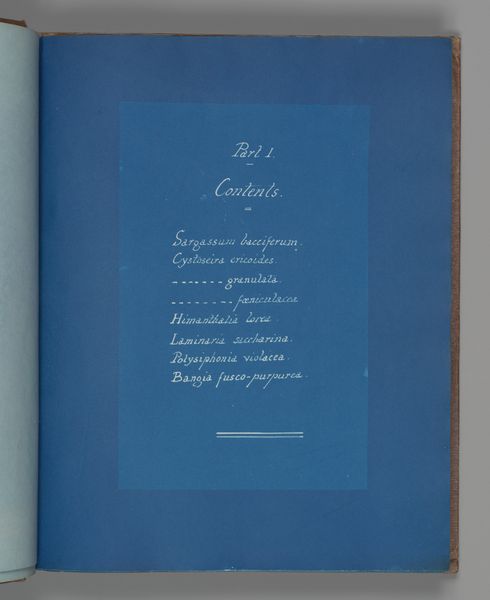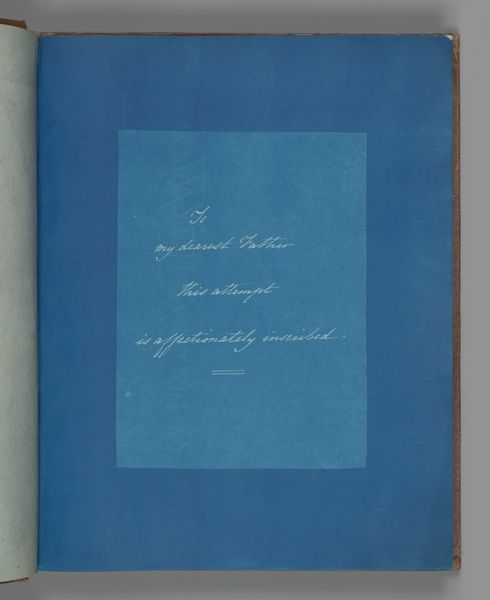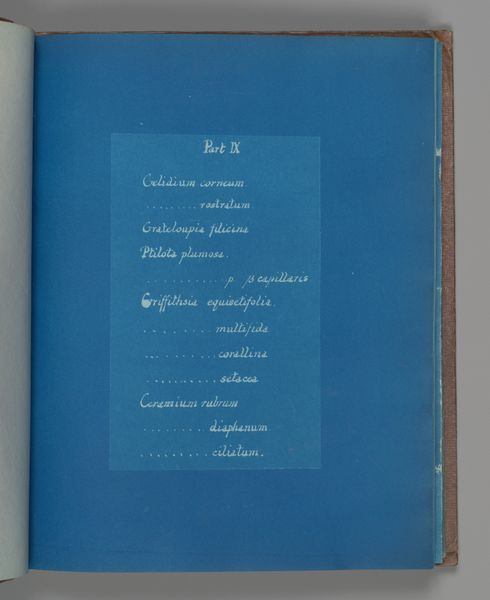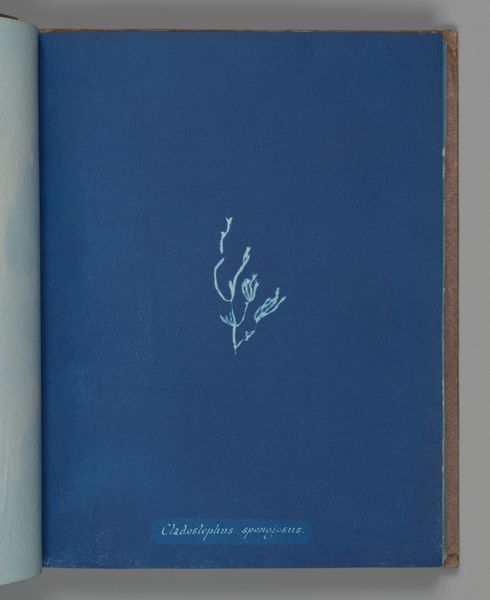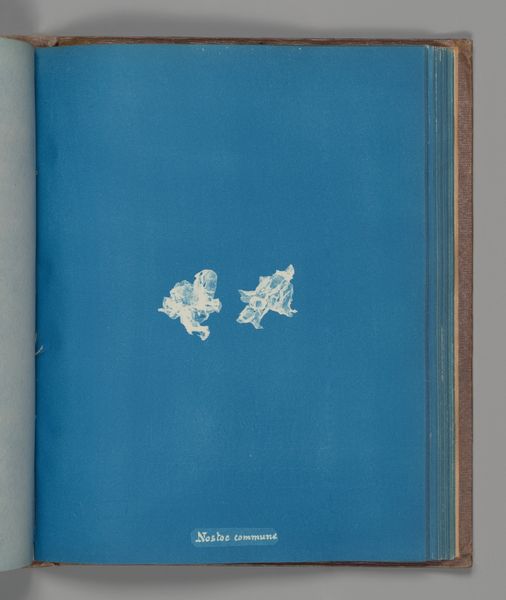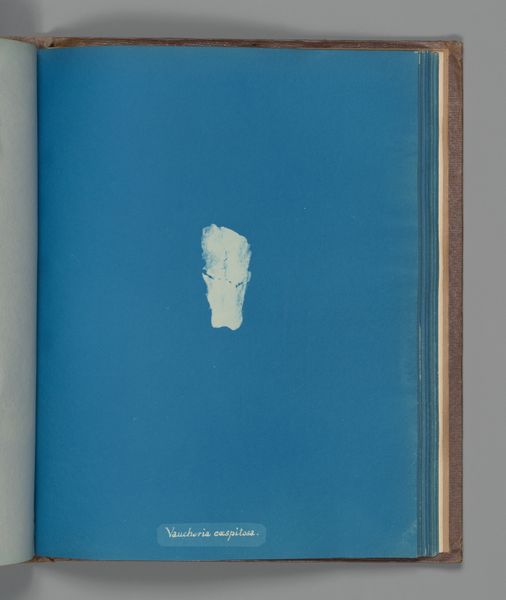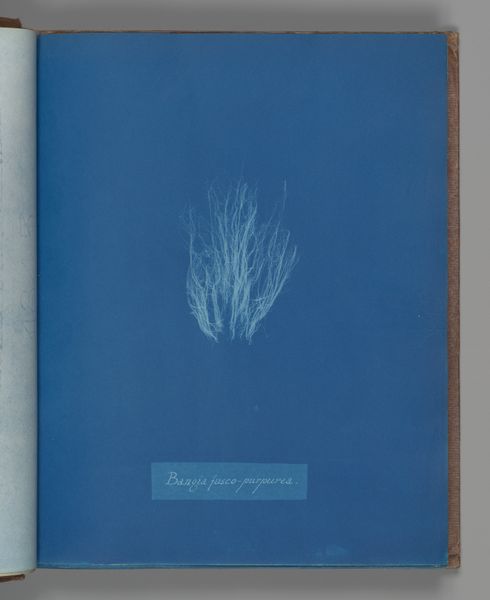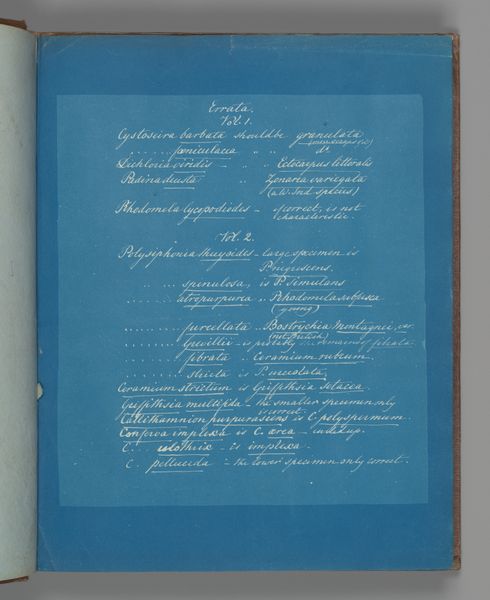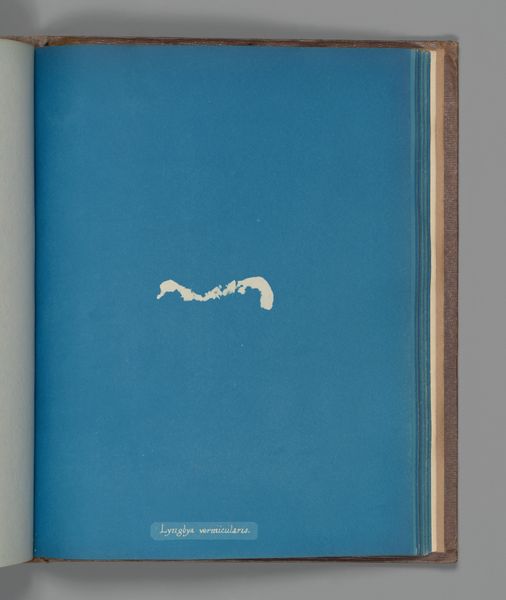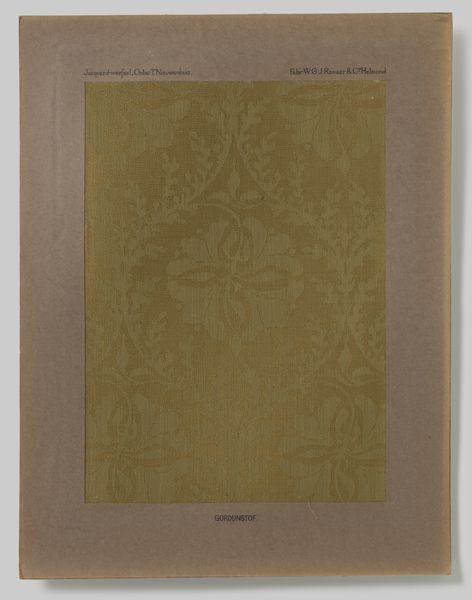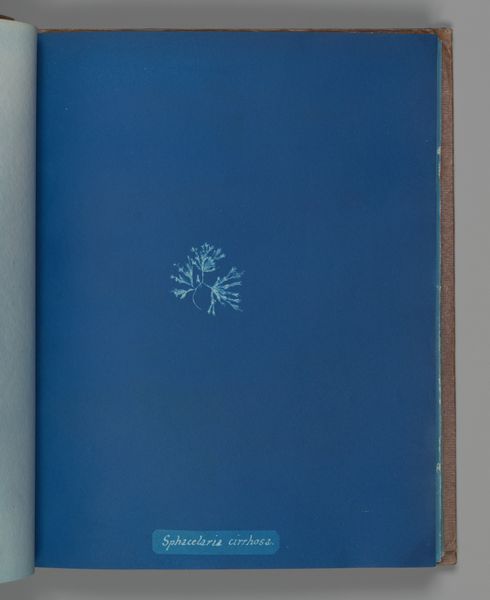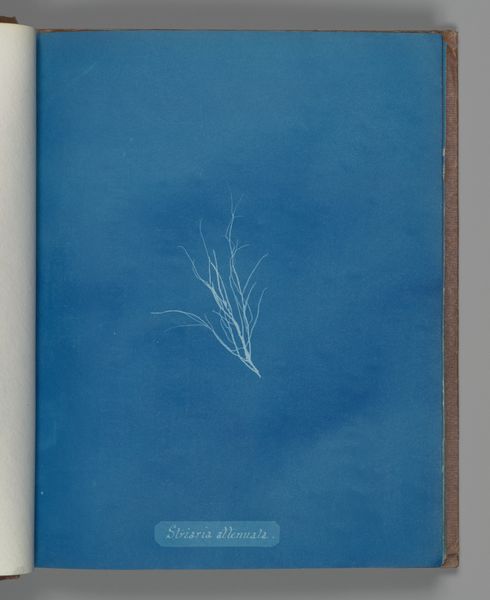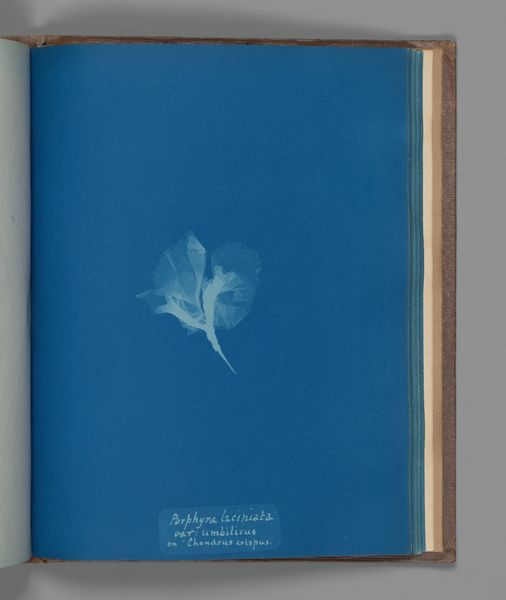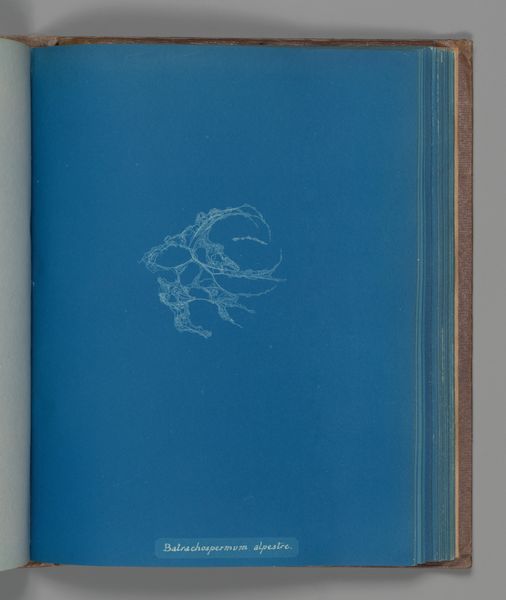
print, textile, paper, cyanotype, photography
#
still-life-photography
# print
#
textile
#
paper
#
cyanotype
#
photography
Dimensions: Image: 25.3 x 20 cm (9 15/16 x 7 7/8 in.)
Copyright: Public Domain
This is “Part III Contents,” a cyanotype made by Anna Atkins in England, sometime in the mid-19th century. It is one of many photograms that she made for her publication *British Algae*. Atkins was part of a privileged social circle that was deeply enmeshed in the scientific establishment. Her father, John George Children, was a well-known chemist, mineralogist, and zoologist at the British Museum. Because of her family connections, Atkins had access to cutting-edge scientific ideas. She was also part of a social network that included some of photography’s earliest pioneers, such as William Henry Fox Talbot, the inventor of the calotype process. In producing her volume of algae, Atkins aimed to make scientific knowledge more widely accessible through the new medium of photography. For those of us interested in the social history of art, this cyanotype exemplifies how the rise of scientific institutions influenced artistic practices. By consulting archives and publications, we can continue to investigate the intersection of art, science, and society in 19th-century Britain.
Comments
No comments
Be the first to comment and join the conversation on the ultimate creative platform.
